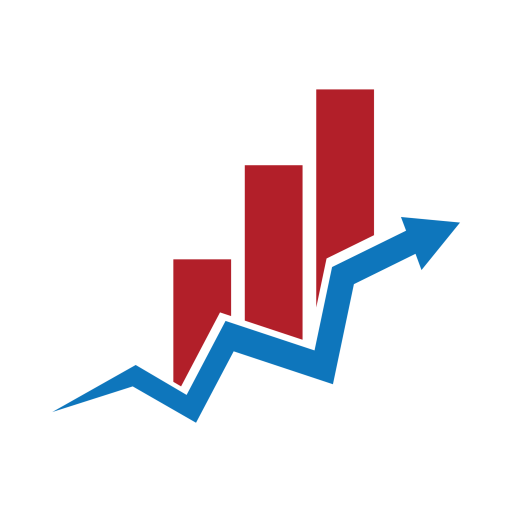The current economic environment has seen a significant surge in money market funds, with assets reaching record levels as investors seek safety and competitive yields. This growth underscores the importance of understanding whether money market investments are a prudent choice in today’s financial landscape.
As investors navigate the complexities of the current yield environment, it’s crucial to examine the advantages and potential drawbacks of funds offered by the money market. Comparing these funds to traditional savings accounts and other short-term investment vehicles will provide valuable insights for making informed decisions.
For those concerned about market volatility, money market funds offer a balance of safety, liquidity, and yield, making them a worthy consideration as part of a diversified investment portfolio strategy.
Understanding Money Market Investments
Understanding the intricacies of money market investments is crucial for making informed financial decisions. Money market funds are a type of investment that provides a low-risk entry point into the financial market.
What Are Money Market Funds?
Money market funds invest in low-risk assets such as Treasury bonds, CDs, or short-term, high-quality corporate bonds with maturities of less than a year. Unlike stock or bond funds, they have a fixed price of $1 per share, and money market funds aim to maintain their Net Asset Value (NAV). This means that your account value remains stable, with any growth coming from your earnings.
How Money Market Funds Work
Money market funds operate by pooling investors’ capital to purchase a diversified portfolio of short-term, high-quality debt instruments with maturities typically less than 13 months. Key characteristics include:
- Maintaining a stable Net Asset Value (NAV) of $1 per share, ensuring your principal investment remains constant while earnings are distributed as income.
- The 7-day SEC yield is used to compare money market fund returns, representing the annualised yield based on the fund’s performance over a seven-day period.
- Income generated by the fund is regularly distributed to shareholders, typically on a monthly basis, either as cash or reinvested into additional fund shares.
- Employing sophisticated risk management strategies and adhering to strict regulatory requirements regarding credit quality, maturity limitations, and portfolio diversification to maintain stability.
By understanding how money market funds work, investors can make informed decisions about their financial portfolios, leveraging the stability and liquidity that these funds provide.
Types of Money Market Funds
The diverse world of money market funds encompasses several distinct categories, each with its own characteristics. Understanding these differences is essential for investors to make informed decisions that align with their financial goals and risk tolerance.
Taxable vs. Tax-Exempt Funds
Money market funds can be categorised as either taxable or tax-exempt. Taxable funds invest in securities that generate taxable income, whereas tax-exempt funds invest in municipal securities, the income from which is generally exempt from federal income tax and, in some cases, state and local taxes. Investors in higher tax brackets may find tax-exempt funds more appealing as they help reduce tax liabilities.
Government vs. Retail Funds
Government money market funds invest in securities issued or guaranteed by the U.S. government, such as Treasury bills. These funds are considered to have very low credit risk. Retail money market funds, on the other hand, invest in a broader range of short-term securities, including commercial paper and certificates of deposit. While they may offer slightly higher yields, they come with a marginally higher risk.

Prime Money Market Funds
Prime money market funds represent a specific category of retail funds that invest primarily in high-quality, short-term corporate debt securities and bank obligations. These funds typically offer higher yields than government money market funds but come with slightly elevated credit risk due to their exposure to corporate issuers. Prime funds maintain diversified portfolios across various sectors and issuers to mitigate risk.
- Prime money market funds invest in corporate and bank debt issued by U.S. and international entities, offering a diversified investment portfolio.
- They typically provide higher yields than government funds, making them attractive for investors seeking better returns.
- Despite the slightly higher credit risk, prime funds are managed to maintain low risk through diversified investments and strict quality controls.
For investors seeking higher yields than government funds while maintaining relatively low risk, prime money market funds offer an attractive middle ground in the short-term investment spectrum.
Is Money Market a Good Investment Right Now?
In the present economic climate, understanding the pros and cons of money market investments is crucial. Investors are continually seeking safe and liquid options that can provide competitive returns. Money market funds have become a focal point in this search.
Current Yield Environment
The current yield environment is a critical factor in determining the attractiveness of money market funds. As of now, these funds offer competitive yields compared to traditional savings accounts. According to a recent Bloomberg article, “A $7 Trillion and Growing Cash Pile Defies Wall Street Skeptics,” there has been a significant influx of capital into money market funds, indicating their appeal in the current financial landscape.
Central bank monetary policy decisions significantly influence the yields offered by money market funds. The adjustments in interest rates directly impact the returns these funds can provide. For instance, when interest rates rise, the yields on money market funds tend to increase, making them more attractive to investors seeking better returns on their cash holdings.
Economic Factors Affecting Money Market Returns
Several economic factors affect the returns on money market investments. These include inflation trends, economic growth projections, global financial conditions, and regulatory changes. Inflation, in particular, plays a crucial role as higher inflation can erode the purchasing power of the returns from money market funds, even if the nominal yields appear attractive.
| Economic Factor | Impact on Money Market Funds |
|---|---|
| Inflation Trends | Higher inflation erodes the real returns of money market investments. |
| Economic Growth Projections | Stronger growth typically leads to higher interest rates, benefiting money market fund yields. |
| Global Financial Conditions | International capital flows can impact domestic money markets, especially for funds with international securities. |
As Mark Zandi, Chief Economist at Moody’s Analytics, noted in a recent statement, “The outlook for money market funds is closely tied to the overall economic environment and monetary policy decisions.” This underscores the importance of staying informed about economic trends when considering investments in money market funds.
Advantages of Money Market Investments
Investing in money market funds offers several key benefits for those looking to manage their cash effectively. These investments are designed to provide a low-risk option for investors, offering a combination of safety, liquidity, and returns that are competitive with traditional savings accounts.
Safety and Stability
One of the primary advantages of money market funds is their emphasis on safety and stability. These funds invest in high-quality, short-term debt securities, which reduces the risk of losses. As a result, money market funds are considered a stable investment option, suitable for investors who are risk-averse or have short-term financial goals.
Liquidity and Accessibility
Money market funds also offer high liquidity and accessibility. Investors can typically access their money when needed, making these funds an ideal choice for emergency funds or for managing short-term cash requirements. The liquidity of money market funds is a significant advantage over other investment options that may have penalties for early withdrawal or require a longer-term commitment.

Competitive Yields Compared to Traditional Savings
Another benefit of money market funds is that they often provide yields that are competitive with, or superior to, those offered by traditional bank savings accounts. This is due to the operational efficiencies of money market funds and the competitive structure of the investment management industry, which drives providers to maximize yields while maintaining safety. The table below highlights the comparative yields of money market funds versus traditional savings accounts.
| Investment Type | Average Yield | Liquidity |
|---|---|---|
| Money Market Funds | 2.5% | High |
| Traditional Savings Accounts | 1.8% | High |
In conclusion, the advantages of money market investments, including their safety, liquidity, and competitive yields, make them an attractive option for investors seeking to manage their cash effectively.
Disadvantages and Risks
Money market funds are not without risks, and understanding these is crucial for investors. While they are generally considered safe, there are several disadvantages associated with these investments.
Limited Growth Potential
One of the primary drawbacks of money market funds is their limited growth potential. These funds typically invest in low-risk, short-term debt securities, which usually offer lower returns compared to more aggressive investments. As a result, investors seeking higher yields may find money market funds less appealing.
Inflation Risk
Another risk associated with money market funds is inflation risk. The returns from these funds may not keep pace with inflation, potentially eroding the purchasing power of investors’ money over time. This is particularly concerning for long-term investors who may see the real value of their investments decline.
Understanding Insurance Coverage
It’s also important to understand the insurance coverage associated with money market funds. Unlike traditional bank savings accounts and CDs, which are FDIC-insured up to $250,000, money market funds are not insured by the FDIC. However, money market funds held in brokerage accounts may be eligible for $500,000 coverage under SIPC. The key differences are highlighted in the following table:
| Investment Type | Insurance Coverage | Maximum Coverage |
|---|---|---|
| Bank Savings Accounts/CDs | FDIC | $250,000 |
| Money Market Funds in Brokerage Accounts | SIPC | $500,000 |
Investors should be aware of these distinctions when evaluating money market funds against bank products, particularly for large cash positions that might exceed insurance limits.
Money Market Funds vs. Other Investment Options
Understanding how money market funds stack up against other investment options is crucial for making informed financial decisions. Money market funds offer a unique combination of liquidity, low risk, and competitive yields, making them an attractive option for certain investors.
Money Market Funds vs. Savings Accounts
Money market funds and savings accounts are both liquid, low-risk options, but they differ in terms of yield and flexibility. Money market funds generally pay a higher yield than traditional bank savings accounts, making them an attractive alternative for investors seeking better returns on their short-term funds.

Money Market Funds vs. Certificates of Deposit
Certificates of Deposit (CDs) offer a fixed return over a specified term, but they come with penalties for early withdrawal. In contrast, money market funds provide easy access to your money without such penalties, although the returns may fluctuate.

Money Market Funds vs. Bond Funds
Bond funds invest in longer-term securities, accepting greater interest rate risk in pursuit of higher yields. Money market funds, on the other hand, prioritise stability through short-term instruments, making them a more conservative choice for investors seeking to minimise principal volatility.

In conclusion, when evaluating money market funds against other investment options, it’s essential to consider your financial goals, risk tolerance, and liquidity needs. By understanding the characteristics of each investment vehicle, you can make more informed decisions that align with your overall financial strategy.
How to Choose the Right Money Market Fund
The process of selecting a suitable money market fund involves considering various aspects, including fees, yield, and tax implications. Investors must weigh these factors against their financial goals and risk tolerance.
Evaluating Fees and Expenses
When choosing a money market fund, it’s crucial to evaluate the fees and expenses associated with it. Lower fees can significantly impact overall returns, making it essential to compare expense ratios across different funds.
Assessing Yield and Performance
The yield of a money market fund is another critical factor. Investors should compare the yields of different funds, keeping in mind that higher yields often come with slightly higher risks. Historical performance can also provide insights into a fund’s stability and management.
Considering Tax Implications
Tax implications play a significant role in the selection process. Tax-exempt funds, also known as “munis” or “municipal” funds, offer federally tax-free earnings, which can be particularly beneficial for investors in higher tax brackets. Some funds invest in state-specific bonds, providing double tax exemption for residents of those states.
| Fund Type | Tax Benefits | Suitable For |
|---|---|---|
| Taxable Funds | No tax benefits | Investors in lower tax brackets |
| Tax-Exempt Funds | Federally tax-free | Investors in higher tax brackets |
| State-Specific Funds | Double tax exemption (federal and state) | Residents of the specific state |

Conclusion: Are Money Market Funds Right for Your Portfolio?
Ultimately, the decision to invest in money market funds depends on individual financial goals and risk tolerance. These funds serve as valuable components within a diversified investment strategy, offering stability, liquidity, and modest income that complement growth-oriented assets.
The current market environment has enhanced the appeal of money market funds, providing competitive yields while maintaining their characteristic safety and accessibility. For short-term financial goals, emergency reserves, or temporary cash positions during market uncertainty, money market funds offer an attractive balance of yield and protection.
Investors should carefully assess their overall financial objectives, time horizon, and risk tolerance when determining the appropriate allocation to money market funds within their portfolio. As market conditions evolve, the role and allocation of these funds warrant regular review and potential adjustment.
FAQ
What is the primary benefit of investing in a money market fund?
The primary benefit is the ability to earn a competitive yield while maintaining liquidity and minimising risk, as these funds typically invest in low-risk, short-term debt securities.
Are money market funds insured by the Federal Deposit Insurance Corporation (FDIC)?
No, money market funds are not insured by the FDIC. However, some money market funds invest in securities that are backed by the US government, which can provide a level of protection. It is essential to understand the specific fund’s investment objectives and risks.
How do fees and expenses affect the returns on my money market fund?
Fees and expenses can reduce the returns on your money market fund. It is crucial to evaluate the fund’s expense ratio and other costs to ensure you understand the total cost of your investment.
Can I lose money investing in a money market fund?
While money market funds are designed to be low-risk, it is possible to lose money if the fund’s investments decline in value or if there is a significant increase in interest rates. However, most money market funds aim to maintain a stable net asset value (NAV).
What is the difference between a taxable and tax-exempt money market fund?
A taxable money market fund invests in securities that generate taxable income, whereas a tax-exempt money market fund invests in securities that are exempt from federal and/or state income tax. The choice between the two depends on your individual tax situation and investment goals.
How do I choose the right money market fund for my investment goals?
To choose the right money market fund, consider factors such as the fund’s yield, fees, and investment objectives. It is also essential to assess your personal risk tolerance and investment goals to ensure the fund aligns with your needs.
Can I use a money market fund as a long-term investment?
Money market funds are typically used as a short-term investment solution, as they are designed to provide liquidity and preserve capital. For long-term investments, you may want to consider other options, such as mutual funds or bond funds, that offer potentially higher returns over the long term.









